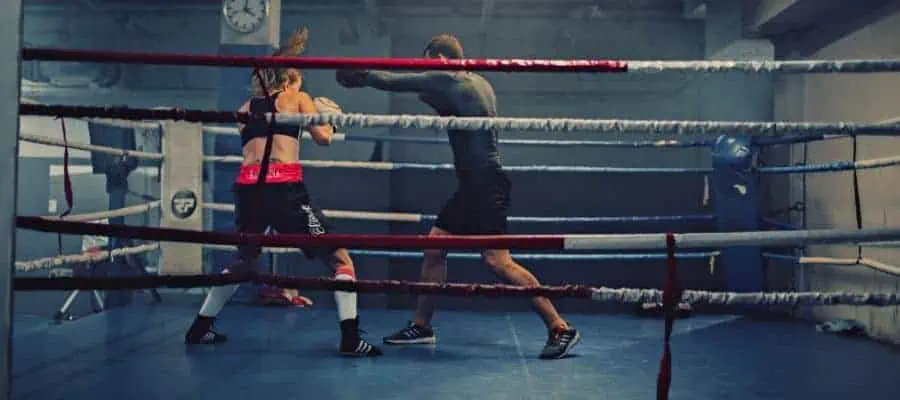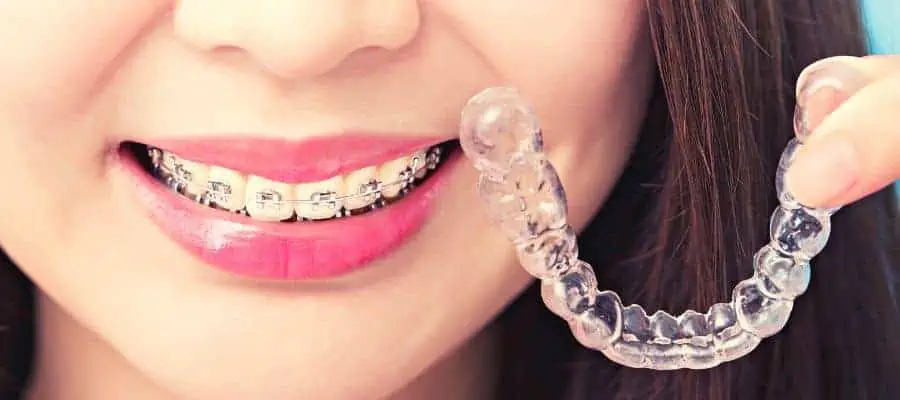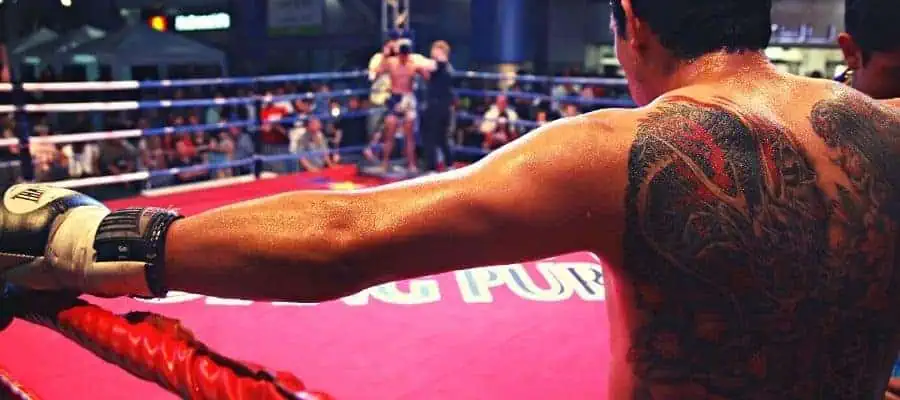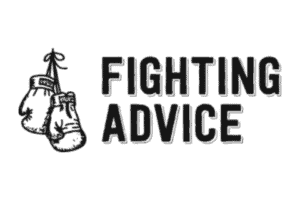When it comes to boxing and other contact sports, using a mouthguard is essential to protect your teeth and gums from injury. However, some people may be tempted to spar without a mouthguard to save money or because they think it will make them look tougher.
It is never safe to spar without a mouthguard. This is a colossal mistake that could lead to serious dental injuries. Suppose you are serious about your boxing career or any other contact sport. In that case, you need to invest in a good quality mouthguard.
Without a mouthguard, you are putting yourself at risk of chipping or breaking your teeth and sustaining damage to your gums. Even if you are wearing a mouthguard, you should still be careful when sparring, as there is always a chance of being hit in the face and sustaining an injury.
Why It’s Important To Wear a Mouthguard When Sparring

According to the American Dental Association, mouthguards are an important piece of protective gear for athletes. The ADA estimates that athletes who wear mouthguards are 60% less likely to suffer dental injuries than those who don’t.
Yet, despite these statistics, far too many martial arts students choose to forego wearing a mouthguard during training. Doing so puts them at risk for various dental injuries, including cracked or broken teeth, damage to gum tissue, and even concussions.
Mouthguards are essential because they help to protect your teeth and gums from injury. When you are hit in the face, your teeth can chip or break, and your gums can sustain damage. In some cases, you may even lose a tooth. Wearing a mouthguard can help to prevent these injuries from occurring.
Mouthguards were invented in the late 1800s and have come a long way since then. Today, many different types of mouthguards are available on the market, and choosing one that is right for you is important.
The Dangers of Sparring Without a Mouthguard
Sparring without a mouthguard is extremely dangerous and should be avoided. Suppose you are hit in the face without a mouthguard. In that case, you could sustain severe dental injuries leading to pain, discomfort, and expensive dental bills.
Let’s take a closer look at all the various injuries that can occur when you spar without a mouthguard:
- Chipped or broken teeth
- Damaged gums
- Loss of a tooth
- Jaw injuries
- Concussions
- Lip and cheek lacerations
- Tongue lacerations
A concussion can occur because the brain is rattling around inside the skull. This can cause long-term damage and, in some cases, even be fatal. After all, your jaw is most likely relaxed when you get hit.
How To Choose, Fit And Care The Mouthguard Properly

Choosing A Mouthguard
The type of mouthguard you choose will depend on your budget, needs, and preferences. The three main types of mouthguards are:
- Stock mouthguards are the least expensive option and can be bought at most sporting goods stores. They come in pre-formed sizes and can be trimmed to fit.
- Boil-and-bite mouthguards are made of a thermoplastic material that becomes soft when boiled in water. They can be fitted to your teeth and will provide a better fit than a stock mouthguard.
- Custom-fitted mouthguards are made by dental professionals and are designed specifically for your teeth. They are the most expensive option, but they will provide the best fit and protection.
Also, you need to consider these three things when choosing a mouthguard:
- Budget: How much money are you willing to spend on a mouthguard? There are many different price points available, so it is crucial to find one that fits within your budget.
- Needs: What type of protection do you need? If you have braces or other dental appliances, you need to find a mouthguard specifically designed for this.
- Preferences: What type of mouthguard do you prefer? There are many different styles available, so it is important to find one you are comfortable with.
Best Brands of Mouthguards
Once you’ve decided on the type of mouthguard you need, you can begin to look at specific brands. There are a few factors to consider when choosing a brand, such as a price, comfort, and fit. Some of the best-known brands of mouthguards include:
- SISU: This company makes custom-fitted mouthguards that are thin and comfortable to wear. They’re also less expensive than other custom-fitted options.
- Shock Doctor: This brand offers a variety of mouthguards, including some designed for people with braces. Their mouthguards are affordable and offer good protection.
- Under Armour: This company makes various sports equipment, including mouthguards. Their mouthguards are comfortable and offer good protection.
- Adidas: Another company that makes various sports equipment, including mouthguards. Their mouthguards are comfortable and offer good protection.
Fit A Mouthguard
It is important to properly fit your mouthguard to ensure that it provides the best possible protection. If your mouthguard is too loose, it could come off during sparring and leave your teeth unprotected. If your mouthguard is too tight, it could cause you to gag or even choke.
Here are some tips for properly fitting your mouthguard:
- Make sure that the mouthguard covers all of your teeth. It should extend past your front teeth and cover your molars.
- The mouthguard should fit snugly against your teeth but should not be so tight that it causes you to gag.
- Make sure that you can breathe easily through the mouthguard.
- Once you have found a mouthguard that fits well, take a bite to ensure it stays in place.
- If the mouthguard feels too loose, you can try boiling it again and reshaping it.
Cleaning Your Mouthguard
Mouthguards need to be replaced periodically, as they will eventually break down and no longer provide adequate protection. It is also essential to clean them regularly, as bacteria can build up on the surface.
To clean a mouthguard, rinse it in cold water and then brush it with toothpaste. You can also soak it in a denture-cleaning solution, such as Efferdent. Be sure to rinse it thoroughly afterward.
Store it in a hard plastic case when you’re not wearing it to avoid losing or damaging your mouthguard. Make sure also to clean your plastic case regularly.
How Often Should You Change Your Mouthguard?
Most experts recommend that you replace your mouthguard every three to six months. However, if you notice any wear or damage, you should replace it sooner. This is because mouthguards can break down over time and may no longer provide adequate protection.
It is also wise to replace them due to hygiene. Over time, bacteria can build up on the surface of your mouthguard. This can lead to gum disease or other infections.
To be safe, try replacing your mouthguard every six months. You should also clean it regularly and store it in a hard plastic case when you’re not using it.
Why Do Mouthguards Only Cover Top Teeth?

Mouthguards are essential equipment for athletes of all kinds, but they only protect the top teeth. Why don’t mouthguards also protect the bottom teeth?
The answer to this question lies in the way that mouthguards are designed to work. They work by absorbing the impact of a blow to the head. This minimizes the damage that could be done to the teeth. The bottom teeth are less likely to be injured than the top teeth.
So there is no need to protect them with a mouthguard. Since the human skull has upper teeth in front of lower teeth, the bottom teeth are less likely to be damaged in a fall or collision. Breathing with a mouthguard covering only the top teeth is also easier.
If a mouthguard protected both the top and bottom teeth, it would make breathing more difficult and even cause you to gag. Some mouthguards on the market protect both the top and bottom teeth, but they are not as common. Most athletes prefer to use a mouthguard that only covers the top teeth.
What If You Are Wearing Braces?

If you have braces, you will need to find a mouthguard that fits over them. There are a few different options available, including:
You can get a mouthguard specially designed for users with braces or a special mouthguard made by your orthodontist.
If you wear braces, you must talk to your orthodontist about the best type of mouthguard for you. They will be able to ensure that the mouthguard fits appropriately over your braces and doesn’t interfere with their work.
Should You Wear A Mouthguard While Training?

If you participate in boxing training, you may wonder if you should wear a mouthguard. The answer to this question depends on the type of boxing training you participate in. Suppose you are sparring or participating in any contact sport. In that case, wearing a mouthguard is recommended to protect your teeth and gums.
Simple Workout
Suppose you are simply working out with punching bags or doing other forms of exercise. In that case, it is not necessary to wear a mouthguard. If, for example, you are doing drills with a partner, it is always wise to be on the safe side and wear a mouthguard. That way, your teeth, and gums will be protected if you accidentally get hit in the mouth.
Important Habit
Wearing a mouth guard during practice is a good idea for another reason-it can help you get used to wearing one in case you ever have to compete in a bout. If you have never worn a mouthguard before, it can be uncomfortable and take some getting used to.
Wearing one during training will help you get used to the feeling so that you are not distracted by it during a real match. You will also learn how to breathe with one in, which is crucial because you will not be able to do so as easily with a mouthguard.
Reason Why Some People Do Not Wear Mouthguards
Some people choose not to wear mouthguards during training because it inhibits their breathing. Indeed, you will not be able to breathe as easily with a mouthguard. But it is important to remember that you will not be wearing one during the entire training session.
You will only be wearing it during specific exercises or drills. In addition, you can remove the mouthguard when you need to take a break or drink water.
Ultimately, it’s up to you whether or not to wear a mouthguard during training. However, it is always better to be safe than sorry. Suppose you are participating in any contact sport. In that case, it is advisable to wear a mouthguard to protect your teeth and gums. Talk to your coach about his opinion on the matter and make the right decision for you.
In Which Martial Arts Is A Mouthguard Necessary?

Most people think a mouthguard is only necessary for contact sports such as football or hockey. However, many different types of martial arts also require the use of a mouthguard. Here are some examples:
Muay Thai
This form of kickboxing originates from Thailand and is known for its particularly brutal strikes. Because of the high risk of serious injury, most Muay Thai competitions require a mouthguard.
Jiu-Jitsu
Jiu-jitsu is a grappling martial art focusing on submissions rather than strikes. Although the risk of getting hit in the face is relatively low, there is still a significant risk of teeth getting knocked out during training. As such, many Jiu-Jitsu academies require the use of a mouthguard.
Kickboxing
Kickboxing is a martial art that combines elements of boxing and Muay Thai. Like Muay Thai, it is a striking-heavy sport with a high risk of serious injury. As such, most kickboxing competitions require competitors to wear mouthguards.
Taekwondo
Taekwondo is a Korean martial art focusing on kicks and punches. Although the risk of getting hit in the face is relatively low, there is still a significant risk of teeth getting knocked out during training. As such, many taekwondo academies require the use of a mouthguard.
Boxing
Boxing is a martial art that, as the name suggests, focuses on punches. It is a very striking-heavy sport with a high risk of serious injury. As such, most boxing competitions require competitors to wear mouthguards.
Wrestling
Wrestling is a martial art that focuses on grappling and takedowns. Although the risk of getting hit in the face is relatively low, there is still a significant risk of teeth getting knocked out during training. As such, a mouthguard is essential for wrestling.
As you can see, there are many different types of martial arts in which a mouthguard is necessary. If you train in any of these martial arts, it is crucial to make sure that you always wear a mouthguard during training and competition.
Conclusion
It is important to properly fit your mouthguard to ensure that it provides the best possible protection. Sparring without a mouthguard is extremely dangerous and should be avoided. Suppose you are hit in the face without a mouthguard.
In that case, you could sustain severe dental injuries leading to pain, discomfort, and expensive dental bills. There are many different types of mouthguards available on the market, so it is important to choose one that is right for you. The type of mouthguard you choose will depend on your budget, needs, and preferences.
Recent Posts
What is Manachai's Fighting Style? Unveiling Muay Thai Mastery
Manachai, a celebrated figure in the Muay Thai world, has captivated audiences with his exemplary martial prowess. Hailing from the heartlands of Thailand, his name is synonymous with the art of...
What Was Chamuekpet Hapalang's Fighting Style? Unveiling Techniques
Chamuekpet Hapalang was a renowned figure in the world of Muay Thai (record 200-48-2), embodying a fusion of Muay Bouk and Muay Khao styles. Originating from Thailand, the art of Muay Thai is known...
